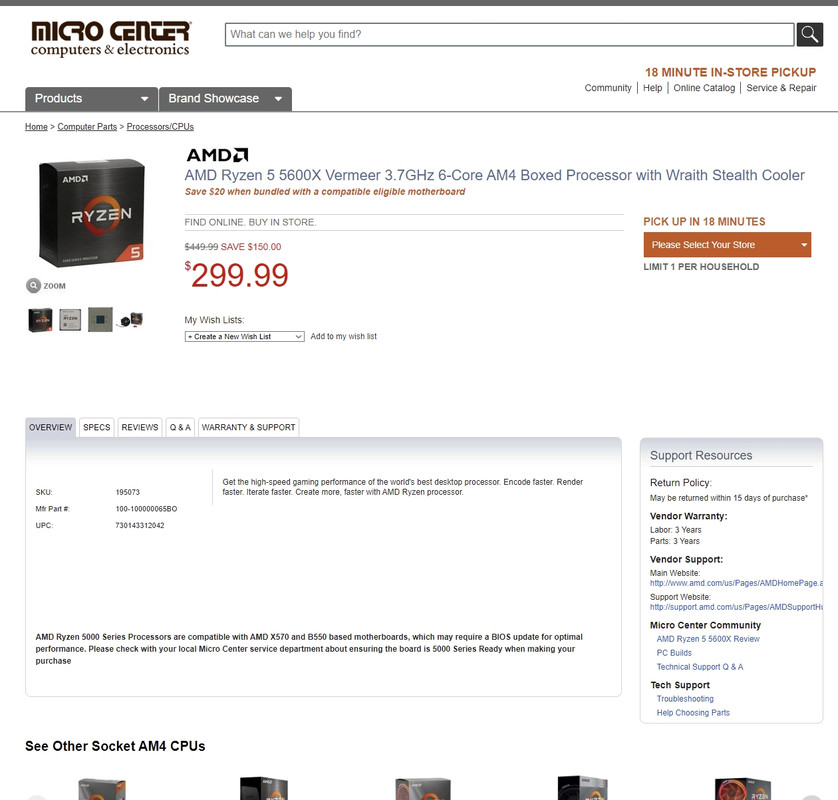ent
New Member
- Joined
- Mar 31, 2021
- Messages
- 5 (0.00/day)
Well those CPUs are disappointing, but I guess most people expected this. Not much to add here.
I have a question about test setup/testing procedure tho. I was looking at SPI 32M results in this review and one thing caught my eye. If you compare those 2:
11900K review

5800X review

You can see that all Zen2 based CPUs are about 2,5 minute slower in the graph from 11900K review compared to 5800X review. I assume those tests were re-run as test setups differ between both reviews (different AGESA, different Windows 10 version). It seems to me that Zen2 SuperPi 32M results in 5800X review are the results from the time reviews for Zen2 were published and were not rerun for Zen3 launch. Of course SuperPi 32M is quite outdated benchmark and it can behave strangely on modern SW and HW, but those results are still surprising to me. Especially that Zen3 results are not affected by whatever breaks Zen2 scores, if you look at SuperPi 32M results from 11900K review it seems that 5800X needs HALF the time 3700X needs to calculate 32M. I know IPC gains between Zen2 and Zen3 were significant, but those should not be that huge.
As a 3900X owner I actually see the same issue (my SuperPi 32M just got approx. 2:30 slower) on my system and I am quite puzzled what causes this (especially seeing that Zen 3 is not affected). I tried to dig into system settings to fix this somehow with no luck, but I did not look into downgrading AGESA/Windows versions yet.
Does anyone have any hints? Otherwise maybe it is time to retire SuperPi 32M from benchmark list, as it seems to be very unreliable?
I have a question about test setup/testing procedure tho. I was looking at SPI 32M results in this review and one thing caught my eye. If you compare those 2:
11900K review

5800X review

You can see that all Zen2 based CPUs are about 2,5 minute slower in the graph from 11900K review compared to 5800X review. I assume those tests were re-run as test setups differ between both reviews (different AGESA, different Windows 10 version). It seems to me that Zen2 SuperPi 32M results in 5800X review are the results from the time reviews for Zen2 were published and were not rerun for Zen3 launch. Of course SuperPi 32M is quite outdated benchmark and it can behave strangely on modern SW and HW, but those results are still surprising to me. Especially that Zen3 results are not affected by whatever breaks Zen2 scores, if you look at SuperPi 32M results from 11900K review it seems that 5800X needs HALF the time 3700X needs to calculate 32M. I know IPC gains between Zen2 and Zen3 were significant, but those should not be that huge.
As a 3900X owner I actually see the same issue (my SuperPi 32M just got approx. 2:30 slower) on my system and I am quite puzzled what causes this (especially seeing that Zen 3 is not affected). I tried to dig into system settings to fix this somehow with no luck, but I did not look into downgrading AGESA/Windows versions yet.
Does anyone have any hints? Otherwise maybe it is time to retire SuperPi 32M from benchmark list, as it seems to be very unreliable?






